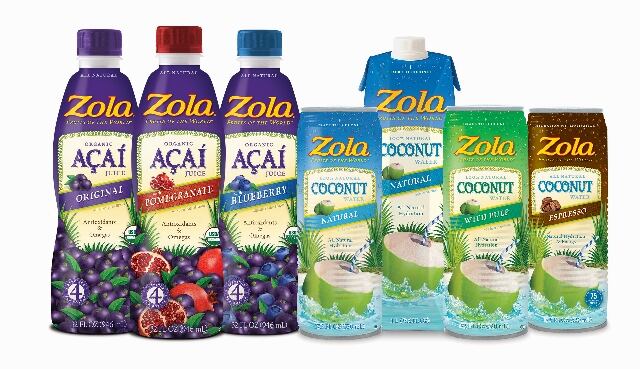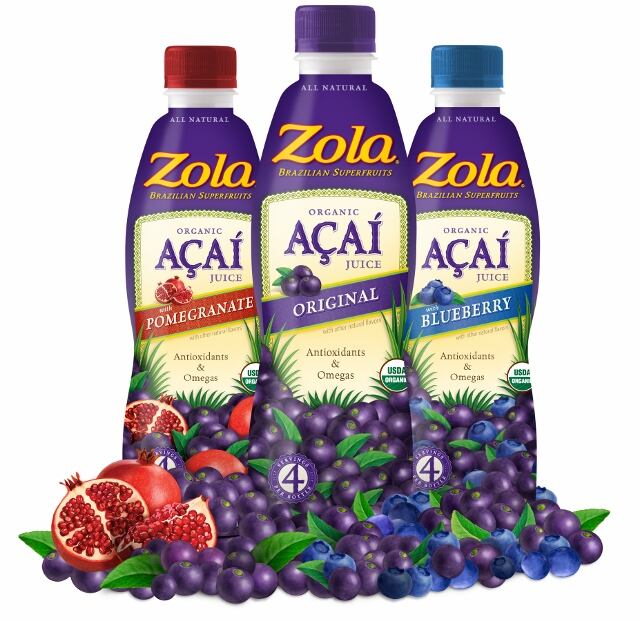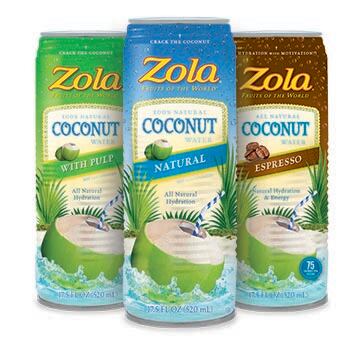Chris Cuvelier, founder and CEO of functional beverages firm Zola Fruits of the World in San Francisco, CA, says instead of trying to conquer the whole country, the best approach is to chip away at the market region by region, channel by channel.
So far in 2013, Zola has been profitable every month, and the brand now has its sights set on eventually hitting the $100 million mark. But it hasn’t been easy. Cuvelier jokes that he is often approached by people commenting on the recent “explosion” of Zola, to which he responds: “Just call us the 12-year overnight success story.”
This week, Cuvelier chatted with FoodNavigator-USA about the trials and successes of launching Zola from the ground up—from selling acai juice out of the back of his Ford Expedition, to the company’s first $1 million investment, to expanding into the already-saturated coconut water market—while gaining some valuable insight (and a few gray hairs) along the way.

FoodNavigator-USA: Tell us about the process of launching Zola Fruits of the World. What were some of the biggest challenges?
Chris Cuvelier: I was in the juice and smoothie industry for a long time and owned several juice and smoothie bars. I had heard about acai becoming very popular in Brazil. It had vitaminas and energia! My two partners (who have since left the company) and I went down there and fell in love with acai. We learned how important it is to be very fast from picking, pulping and freezing to lock in nutrients and flavor. We helped build a factory down there, set up strict quality controls and took part in first pasteurizing of acai. We wanted to be the first producer of packaged acai juice in the world.
In 2001, we launched our first flavor of acai juice in an 11-ounce Tetra pack. At that time, no one in the U.S. knew what acai was. We started selling it out of back of my green Ford Expedition. It was fun because not knowing any differently, we started out selling locally to stores, doing demos and educating people. Finally, we started getting in-store displays. Then in 2004, we got our first Whole Foods division and really started growing from there.
FNU: How did you obtain funding for the business?
Cuvelier: We initially raised $650,000 from family and friends, spread out over about a year and a half. It was pretty lean in those days. I remember at one point early in the business when we had $1,800 in bank, sales of $10,000 per month, and payables of $300,000 to our supplier in Brazil. We were almost out of business, but we were able to turn things around. It was just a matter of needing to grow sales quickly and take inventory and turn it into cash.

FNU: When did Zola really start to feel the effects of acai’s popularity in the U.S.?
Cuvelier: In 2004, Dr. Oz started talking about acai on "Oprah." Now all of a sudden, it got interesting. There wasn't a lot of distribution yet for the product, but they were talking about the benefits. Then in September 2004, we got our first $1 million investment from Emigrant Capital out of New York.
On average, we have been growing 35% year over year since 2002. Emigrant remains the lead investor. Today we’re in the position that every month this year, we’ve been profitable. That’s a big milestone for us. We now have 26 employees in the company, and we expanded a year and a half ago into coconut water.
FNU: So for you, it was more a matter of tackling the market regionally and by channel, as opposed to trying to get national distribution right away.
Cuvelier: It was interesting because when we started, we were very locally focused. And that was great because we had a couple people doing merchandising and setting up displays, and my wife and I were doing demos. The thing that got us in trouble, that I think gets a lot of small start-ups in trouble, was getting in with national distribution too quickly.
All of a sudden, we were doing really well in Whole Foods divisions here in the west. We had all this product on the shelf, but so much more goes into getting it off the shelf. So we decided that instead of trying to be a national company with this small organization of six or seven people, we would pull back and focus on regional distribution on the West Coast.
We started growing in our own backyard; we got into Save Mart, Safeway and Albertsons. Because of that success, we have gone national with a couple companies. Still today, I would say we are national, but we are not trying to conquer the whole country.

FNU: How did you expand into coconut water? What have been the challenges of entering such a mature market?
Cuvelier: As we looked at the company, we saw the acai category slowing down. Our goal was to grow to a $100 million brand, and we didn’t think we’d get there with acai. We saw that coconut water was really growing, and we looked at our core competency—which is sourcing the absolute best products. We tasted coconut waters around the world—Brazil, Mexico, Thailand—and found the best-tasting coconuts come from Thailand. So we broadened the brand away from Brazilian superfruits to a ‘fruits of the world’ platform.
There are already a lot of big companies already with distribution in the category: Pepsi (Naked), Coca-Cola (Zico) and Dr. Pepper/Snapple (Vita Coco). We thought if we take a very controlled approach by region and channel, we would start to see opportunities to grow the channel and business—which has largely come through innovation. We looked at the market and saw a lot of companies doing the tropical angle. So four weeks ago, we launched a coconut water with espresso. It’s wedged between the coconut water and ready-to-drink coffee categories. Now we have a functional flavor, which is good for the brand. But the energy component gives us incrementality in the market.
FNU: Now that you’ve been in the coconut water business for a year and a half, would you characterize the category as more of a cyclical fad or sustainable trend?
Cuvelier: The coconut water category to me is a sustainable trend because has such a specific functionality that’s so desired by people, and that’s hydration. Whether you’re an athlete or partying the night before, hydration is life sustaining. All the coconut water brands are going behind that singular message of hydration. The product has huge potential in the sports drink category. We provide hydration naturally without adding dyes and other things that make sports drinks not natural. But we also have an opportunity to carve out a big segment with the energy component. Coconut water is a pretty sizable business already, but it’s still showing growth potential.
FNU: Do you have any advice or horror stories to share with your fellow food & beverage entrepreneurs?
Cuvelier: I got a lot of horror stories, but I’ll stick to the advice side. To me, there four main things you need to be successful.
- Be different. The food & beverage industry is super competitive. An entrepreneur that approaches the market in the same as the big companies will lose every time. They have more people, more experience and more money.
- Have a strong team. Make sure your employees, board members and experts are strong.
- Start small, create a success story and build from there.
- Make sure you have access to funding. Everything takes longer and costs more than you think. Without funding and good investment partners, we never would have made it to where we are today.
FNU: Do you think a little luck has helped you, too?
Cuvelier (laughs): No way we would have made it without luck! We’ve been especially fortunate in that the past 10 to 12 years has seen the functional beverage market really grow.
